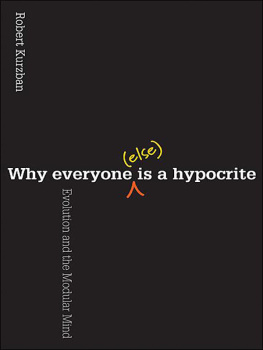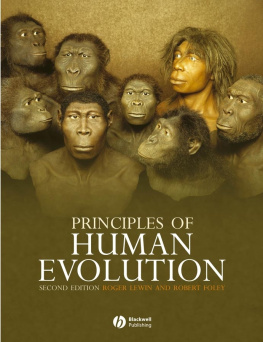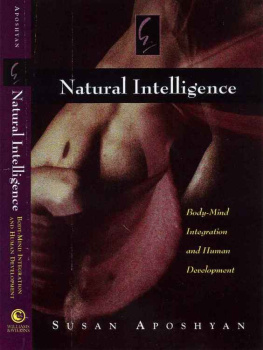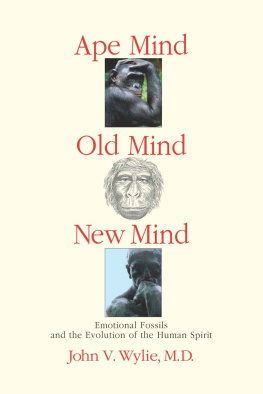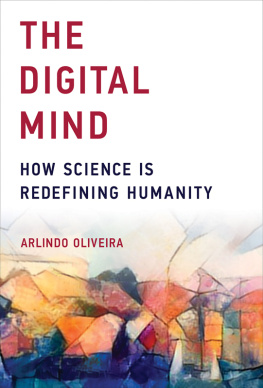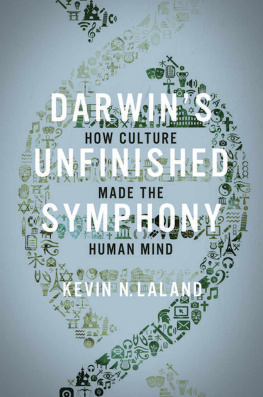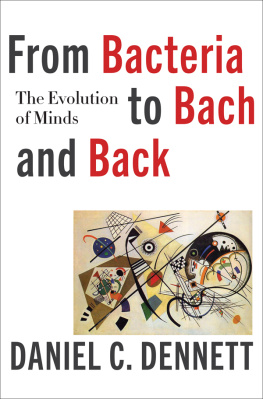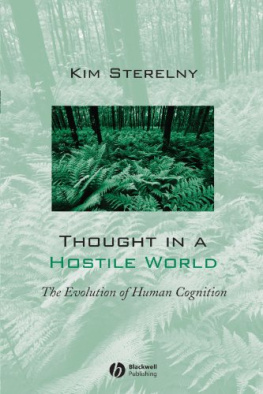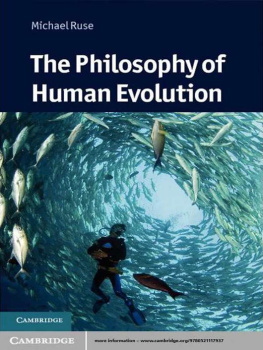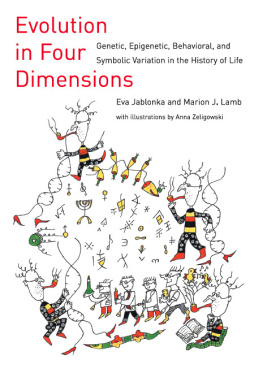Published by Princeton University Press, 41 William street, Princeton, new Jersey 08540
in the United Kingdom: Princeton University Press, 6 oxford street, Woodstock,
oxfordshire OX20 1TW
Printed on acid-free paper.
acknowledgments
Some time ago, I was lucky enough to attend a small workshop on self-deception with some of my scientific idols, including economist Thomas Schelling and biologist Robert Trivers. Surprisingly, to me anyway, the overall timbre of the conversationand I think that the people who were there would probably agree with this characterizationwas a general intellectual spinning of tires.
What struck me during and especially after the workshop was how the concept of modularitya conceptual backbone of my graduate training in evolutionary psychologyeasily unraveled the Gordian knot of self-deception. When I returned to the University of Pennsylvania after the workshop, I started work on what would eventually become two papers that I co-authored with a graduate student who was working with me at the time, Athena Aktipis. Writing the papers got me thinking about a number of issues in the literatures in psychology and economics that modularity helped clarify. For whatever reason, researchers in the social sciences have been, by and large, allergic to evolutionary explanations, and the commitment to modularity. This meant that there were large areas of research that could be usefully informed by this approach. The results of my thinking about these areas, more or less, became this book.
I want to thank the people who were kind enough to take the time to read part or all of various versions of this manuscript, including Clark Barrett, Terry Burnham, John Christner, Angela Duckworth, James Fowler, Amy Kurzban, Nina Kurzban, Steven Kurzban, Mike McCullough, Hugo Mercier, Steve Pinker, Alex Shaw, Ewa Szymanska, and Bart Wilson. Not a few of the ideas in here were developed in concert with another former graduate student of mine, Peter DeScioli. Some of the material toward the end draws heavily on the ideas of yet another former graduate student at Pennthough he was not my studentJason Weeden, who also provided comments on an earlier draft.
Special thanks to my father, Stan Kurzban, and my sweetie, Nicole But-termore, who bravely endured various iterations of this project and whose contributions cannot be overstated. My appreciation also to my agent, Max Brockman and, at Princeton University Press, Eric Schwartz and Debbie Tegarden, all of whom were very tolerant of me in general and my various rookie mistakes in particular during the process. I can't possibly thank Jodi Beder enough for her careful copyediting and many helpful suggestions. Any and all errors, of course, are my own.
And finally, thanks to all the people who have been subjected to the ideas in this book in classes, seminars, conferences, and even the Thanksgiving table. I appreciate the tolerance, the feedback, and the yams.
Robert Kurzban
Philadelphia, PA
March 2010
prologue
Ignorance can save your life in Philadelphia.
If, like me, you've spent some time in Southern California, then you're probably accustomed to cars stopping when you're in a crosswalk. You might even occasionally make eye contact with a driver coming your way. I see you, you see me, so we both know you have to stop.
This could get you killed in Philadelphia. If a driver sees that you see that he's coming, then he knows that you know that your best bet is to stay out of the street, since in the game of person versus car, person always wishes she hadn't played.
So, here's the best way to cross the street in Philadelphia. Keep your eyes away from any lanes of traffic with cars that might run you over. Cross the street looking a little lost or confused; try to walk like a tourist.
The goal is to appear conspicuously ignorant. Because drivers will actually stop for a pedestrian who has no chance of escaping if they barrel through the intersection, your best ally is ignorance: to appear completelyblissfullyunaware. This way, the driver knows you don't know he's coming, and you're now safely categorized as someone who can't be counted on to try to escape.
He'll slow down.
Well, he'll probably slow down. If you really want to be safe, cross with other pedestrians. If you really, really want to be safe, stay in your car. Or out of Philadelphia.
Life in Philadelphia is, in many ways, very much unlike the old video game, Frogger. In the game, you had to move your frog across five lanes of traffic without getting run over by the cars or trucks speeding along the road. After you got past the road, there was a stream with logs, alligators, and turtles in it, and you had to hop on top of these, using them like stepping-stones to get to the other side, paying careful attention to the turtles, which could suddenly submerge beneath your frog, which, I guess, couldn't swim.
Unlike in Philadelphia, in Frogger, refusing to watch for traffic won't help you. It won't work because the cars and trucks on the screen don't care if you know they're coming. They're programmed to run you over, and that's that.
The basic point is that in Frogger, you're not playing a game against another person, but rather you're playing a game against Nature. Only cold, hard reality determines how well you do. Being ignorant or stupid can't help you. In contrast, in Philadelphia, you're playing a game against other people. Here, the rules are very different. Ignorance and stupidity can help.
In cases like Frogger, in which outcomes depend only on Nature, it's no use being stupid or ignorant because Nature doesn't care one way or the other. If you don't watch for cars, she runs over your frog, and you're done.
Ah, but but when you play games against other people, everything changes. In cases like crossing the street in Philadelphia, in which your outcome depends on other people rather than Nature, it can be useful to be ignorant or stupid.

I'm an evolutionary psychologist, and I think a lot about how the human mind is designed. Natural selection has made us, humans, capable of wonders, and from our handsor, really, our brainshave come spacecraft to explore the heavens, sonnets to lift the spirit, and Frogger, to consume the quarters I was supposed to use to buy lunch in my high school cafeteria.
But amid the wonder at the marvels of fine works of engineering like the human eye and our immune system, the reputation of various bits of human brains have been taking a beating. Books and headlines are filled with reports of human shortcomings and frailties, about how we make bad decisions

